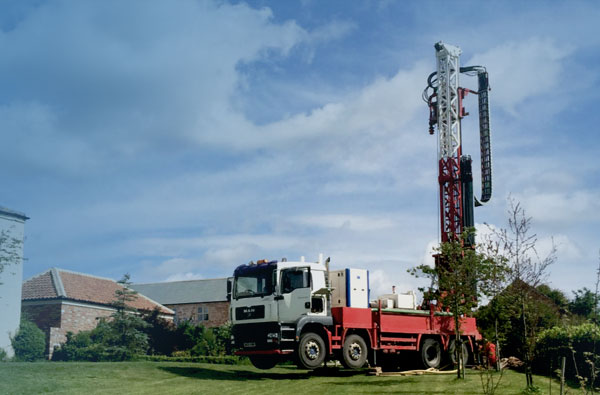
Image Source: Google
Borehole drilling services play a crucial role in providing access to clean and safe water for various purposes, including domestic, agricultural, and industrial use. The process of borehole drilling involves advanced scientific principles and techniques to extract groundwater from beneath the Earth's surface. If you need more information about borehole drilling services, you may visit this website.
In this article, we will delve into the science behind borehole drilling services and explore how this technology works to bring water from the ground to your tap.
The Basics of Borehole Drilling
Borehole drilling is a process that involves creating a narrow hole or well in the ground to access underground water sources. This technique is used to extract water from aquifers, which are underground layers of permeable rock or sediment that can store and transmit water. The following are the basic steps involved in borehole drilling:
1. Site Selection
- The first step in borehole drilling is to select a suitable location for drilling based on geophysical surveys and geological assessments.
- Factors such as the depth of the water table, the quality of the water, and the presence of potential contaminants are considered during site selection.
2. Drilling Process
- Once the site is selected, the drilling process begins with the use of specialized drilling equipment, such as rotary drills or percussion drills.
- The drilling equipment is used to create a borehole in the ground, which can range in diameter depending on the needs of the project.
3. Casing Installation
- After the borehole is drilled, casing pipes are installed to prevent the collapse of the hole and to protect the water source from contamination.
- The casing pipes are usually made of materials such as PVC or steel and are inserted into the borehole to provide structural support.
The Science Behind Groundwater Extraction
Groundwater extraction is a critical component of borehole drilling services, as it involves the process of bringing water from underground aquifers to the surface for use. The following are some key scientific principles behind groundwater extraction:
1. Hydrogeology
- Hydrogeology is the study of the distribution and movement of groundwater in the subsurface.
- Understanding hydrogeological principles is essential for determining the optimal location for borehole drilling and estimating the sustainable yield of the water source.
2. Aquifer Characteristics
- Aquifers vary in terms of their porosity, permeability, and water storage capacity, which can impact the efficiency of groundwater extraction.
- Knowledge of aquifer characteristics helps in designing the most effective borehole drilling and pumping systems to maximize water production.
3. Pumping Systems
- Pumping systems are used to extract groundwater from boreholes and deliver it to the surface for storage and distribution.
- Various types of pumps, such as submersible pumps or jet pumps, are employed based on factors like the depth of the borehole and the volume of water required.
Water Treatment and Distribution
Once groundwater is extracted from boreholes, it undergoes a series of treatment processes to ensure its safety and quality before distribution to end-users. The following are the key steps involved in water treatment and distribution:
1. Filtration
- Water extracted from boreholes is often filtered to remove impurities, sediment, and debris.
- Various filtration methods, such as sand filtration or activated carbon filtration, are used to improve the clarity and purity of the water.
2. Disinfection
- Disinfection is essential to eliminate harmful bacteria, viruses, and pathogens from the water supply.
- Common disinfection methods include chlorination, ozonation, and UV irradiation to ensure that the water is safe for consumption.
3. Distribution Network
- After treatment, the water is stored in reservoirs or tanks and then distributed through a network of pipelines to homes, businesses, and other facilities.
- Proper maintenance of the distribution network is crucial to prevent water contamination and ensure efficient water delivery to consumers.
The Importance of Borehole Drilling Services
Borehole drilling services are essential for communities and industries that rely on groundwater as a primary water source. The following are some key reasons why borehole drilling services are important:
1. Water Security
- Borehole drilling provides a reliable and sustainable source of water, especially in regions where surface water sources are limited or unreliable.
- Access to groundwater through boreholes helps to enhance water security and resilience against droughts and water scarcity.
2. Cost-Effectiveness
- Borehole drilling can be a cost-effective solution for water supply, especially for rural communities or agricultural operations.
- By tapping into underground aquifers, boreholes can reduce reliance on expensive municipal water systems and water delivery services.
3. Environmental Sustainability
- Groundwater extraction through boreholes is generally considered more environmentally sustainable than surface water abstraction.
- Proper management of borehole drilling activities can help protect aquifer resources and minimize the impact on the surrounding environment.
In conclusion, borehole drilling services combine scientific knowledge, engineering expertise, and technological innovation to bring groundwater from the ground to our taps. By understanding the science behind borehole drilling, we can appreciate the crucial role that this technology plays in providing clean and safe water for various uses.
